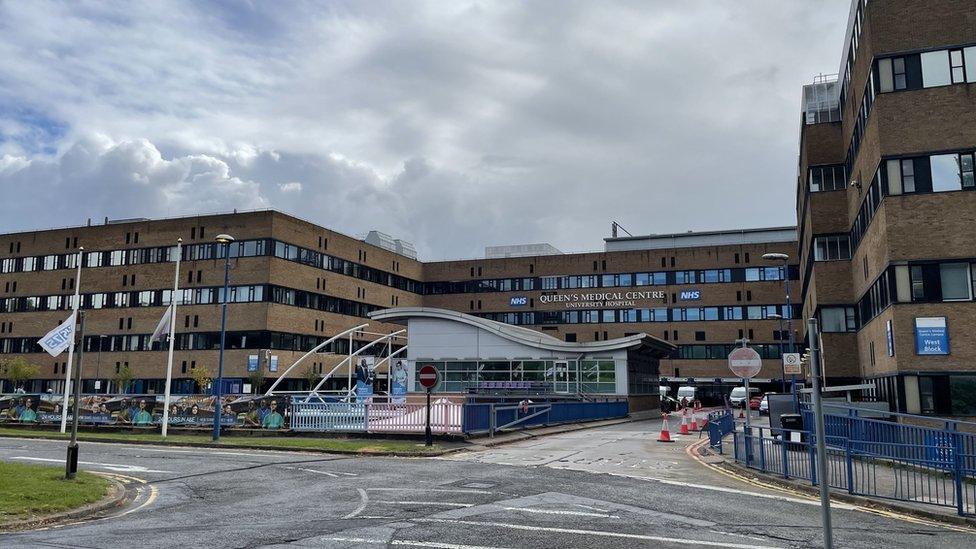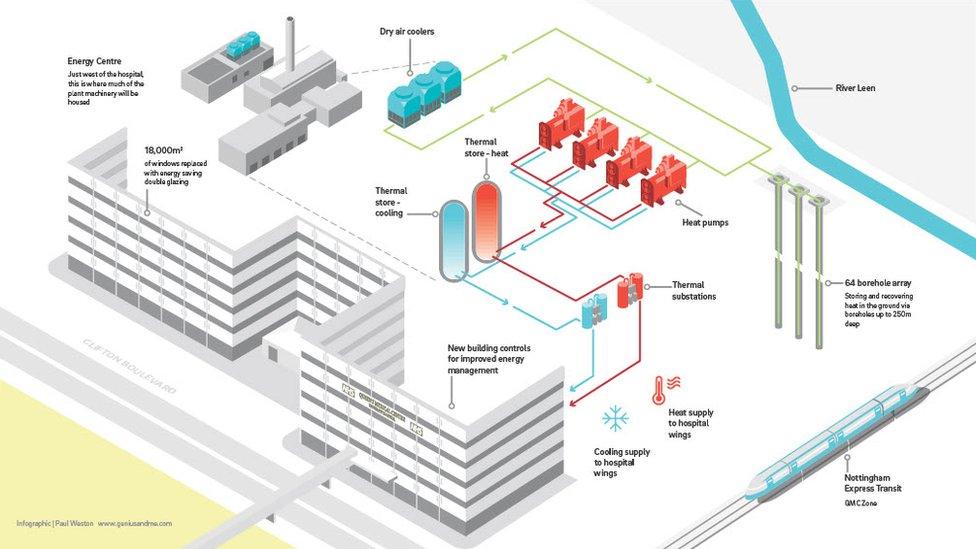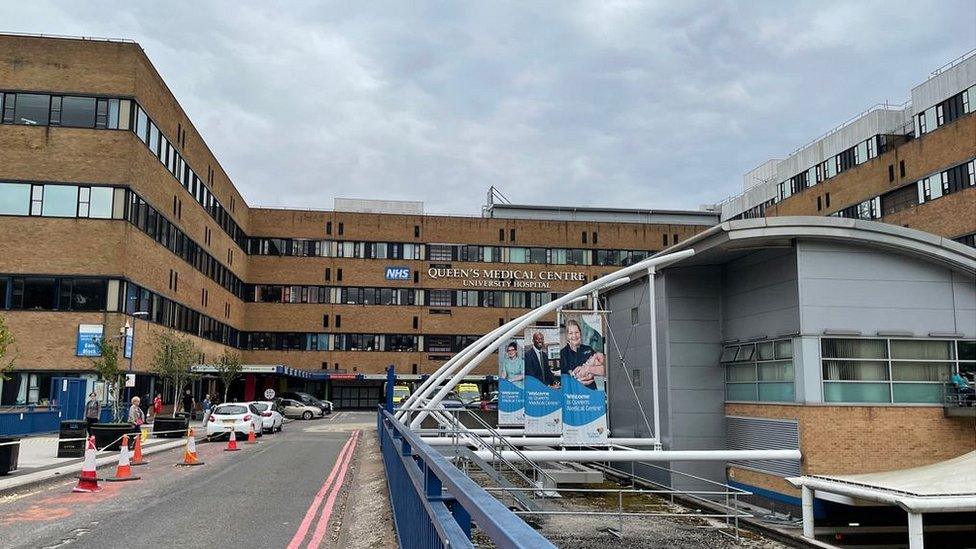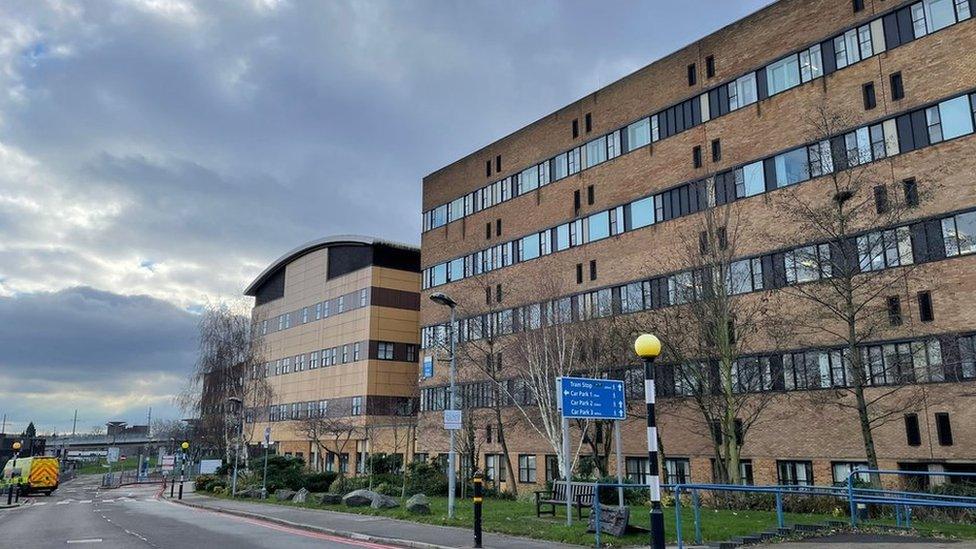Nottingham hospital to install geothermal heating system
- Published

The project to make the Queen's Medical Centre site more energy efficient will cost £64m
A hospital trust is installing a geothermal heating and cooling system to help reduce its carbon emissions.
Nottingham University Hospitals NHS Trust (NUH) said it was part of a £64m project to make the Queen's Medical Centre site more energy efficient.
A new energy centre will be built and run by energy firm E.ON under the plan.
It will use four high-efficiency heat pumps to extract heat from the air and 64 boreholes up to 250 metres deep to draw natural warmth from the earth.
Up to 12,000 single glazed windows will also be replaced as part of the scheme.

The geothermal heating and cooling system will draw warmth from the earth through 64 boreholes
NUH said the project would cut the hospital's carbon emissions by 30% a year initially, which would increase to about 43% after its current gas-fired heating system is decommissioned.
The project is the largest recipient of funding from Phase 3 of the Public Sector Decarbonisation Scheme, initiated by the Department for Energy Security and Net Zero.
Anthony May, the chief executive of NUH, said: "This partnership demonstrates our significant commitment to environmental sustainability and offers a creative solution to meeting our energy needs and tackling climate change, while at the same time improving patient and staff comfort by allowing us to better manage temperatures within our buildings.
"Innovative projects like these will play a hugely important role in helping us meet our ambitious goal of achieving a net zero carbon operation for heating and cooling system emissions by 2040."

Follow BBC East Midlands on Facebook, external, on Twitter, external, or on Instagram, external. Send your story ideas to eastmidsnews@bbc.co.uk, external.
Related topics
- Published25 October 2022

- Published14 July 2023
